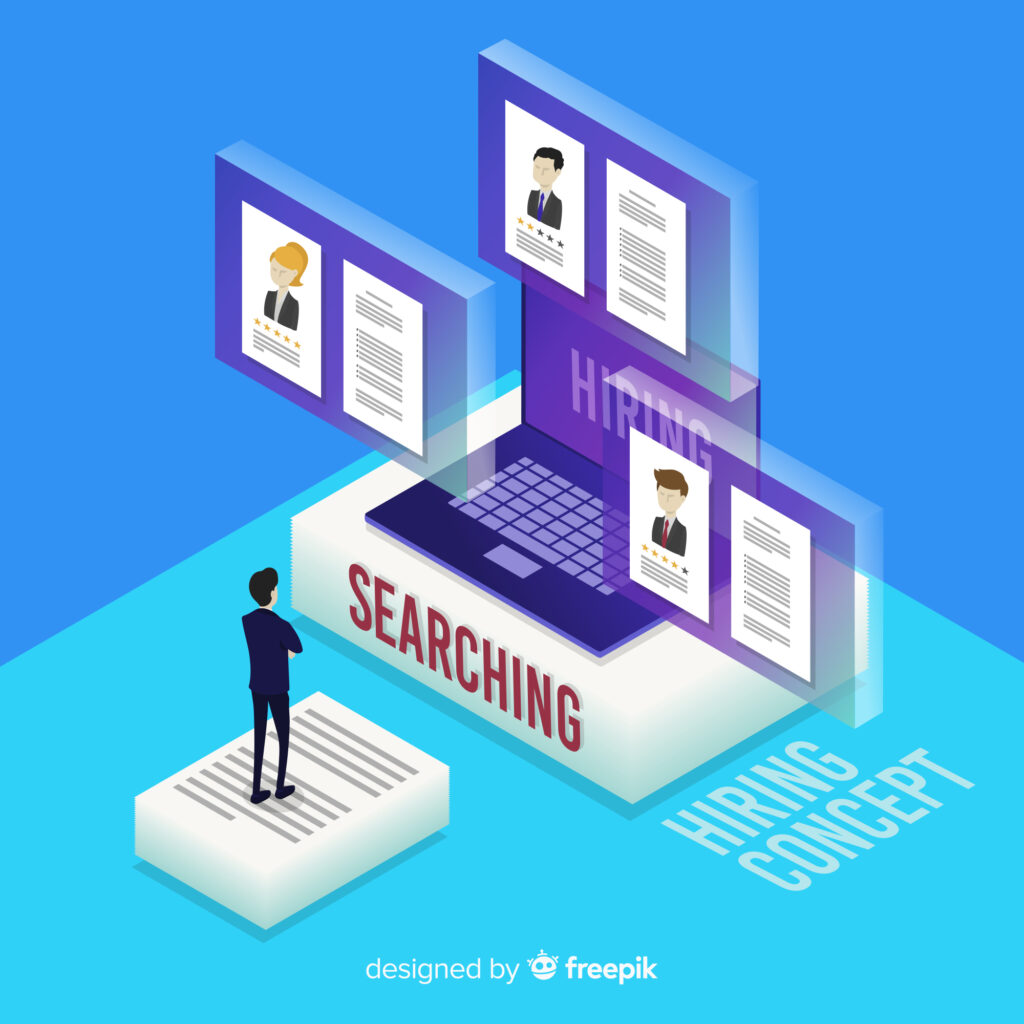As competition in the Indian market grows fiercer, the ability to find the right talent has become more essential than ever. Enter Recruitment Process Outsourcing (RPO)—a strategic approach that allows organizations to enhance their hiring processes by partnering with external experts. It streamlines recruitment, and enhances efficiency and cost-effectiveness, allowing companies to focus on core functions while experts handle talent acquisition.
However, with a variety of options tailored to meet different recruitment challenges, selecting the right type of RPO can significantly impact the hiring success. So, how do you select the right RPO type for your specific recruitment needs? This blog will provide guidance on the essential steps and valuable tips for choosing the ideal RPO provider.
Master RPO Selection: Discover Tailored Solutions for Unequaled Hiring Success
Understanding RPO
Recruitment Process Outsourcing (RPO) is a business strategy where an organization outsources all or part of its recruitment activities to an external provider. In this section, we will explore the importance of partnering with an RPO provider, examine its key features, and discuss the compelling reasons why companies should consider this approach to enhance their recruitment processes.
Identifying Business Needs
Before diving into the specifics, it’s important to recognize several common situations that may require RPO services:
- High-Volume Hiring: Rapidly growing companies often need to hire large numbers of candidates. The right model can streamline this process using technology and expertise.
- Skill Shortages: In industries facing a lack of specialized skills, it can leverage broader networks and targeted sourcing strategies to find the right talent.
- Geographic Expansion: Companies entering new markets may struggle with unfamiliar hiring landscapes. The ideal RPO recruiting model offers local insights and compliance knowledge to facilitate recruitment across regions.

Key Features of RPO
Understanding the core features of RPO can help clarify how these services can be tailored to fit the organization’s needs:
- Scalability: Services that can quickly adapt to changing hiring needs provide greater flexibility, enabling more efficient resource allocation and improved cost management.
- Technology Integration: Many RPO providers utilize advanced recruitment technologies, such as ATS and AI-driven tools, to enhance sourcing, screening, and onboarding processes.
- Expertise and Insight: The ideal model brings industry-specific expertise, market intelligence, and recruitment best practices, which can enhance recruitment strategies.
Why Companies Opt for RPO Services?
Organizations partner with RPO company for several key reasons:
- Cost Efficiency: They reduce recruitment expenses by optimizing hiring processes and minimizing costs from prolonged vacancies.
- Enhanced Candidate Experience: The providers prioritize engagement and communication, resulting in a smoother application process.
- Data-Driven Insights: They provide access to robust analytics and reporting for informed decision-making.
Navigate RPO with G&S: Unlocking Talent in Fierce Markets
The Different Types of RPO Models
Recruitment Process Outsourcing (RPO) models come in various forms, tailored to meet the specific hiring needs and goals of organizations. Here are the primary types:
- End-to-End (Full-Service) RPO: It acts as a recruitment partner that takes full ownership of the recruitment processes, from crafting compelling job descriptions to onboarding new hires. This model is the perfect fit for large organizations with ongoing hiring needs or companies experiencing consistent growth. It can provide the structure and expertise necessary to scale effectively.
- Project-Based RPO: This RPO is tailored for short-term or specific hiring projects, acting like a quick-response team ready to meet urgent recruitment demands. This model works for companies facing temporary recruitment needs, such as seasonal hiring. It is a flexible and scalable solution that provides cost savings of 60% to 70% compared to traditional staffing methods.
- Selective RPO: It offers a focused approach, covering specific parts of the recruitment process, such as sourcing or screening candidates. This model is perfect for companies that require targeted assistance while also retaining some control over their hiring processes.
- On-demand RPO: This RPO model in recruitment provides essential support for organizations to manage unexpected hiring surges and rapid expansions effectively. It offers short-term recruitment assistance, adapting to the company’s needs in real–time. This model is ideal for companies that experience sudden hiring spikes but don’t require ongoing services.

Key Factors to Consider When Choosing an RPO Type
Selecting the right RPO type is like choosing the right tool for a project—it requires understanding the businesses’ unique landscape. Here are the key factors to keep in mind:
- Business Size and Growth Goals: An organization’s size and growth ambitions influence the choice of model. Evaluate the current workforce and future hiring plans for selecting the right model.
- Industry Needs: Different industries face unique recruitment challenges. For instance, tech firms emphasize innovation and cultural fit, while healthcare companies focus on adhering to compliance needs. Selecting an RPO provider with industry expertise is crucial.
- Recruitment Volume: High-volume hiring requires a model focused on speed and efficiency, while niche roles benefit from a more strategic approach. Recruitment volume is essential in determining the right hiring strategy.
- Budget and Resources: Assess total costs, including setup, ongoing expenses, and potential ROI, to ensure the investment is worthwhile and budget constraints are met.
- Internal Expertise: Evaluate the internal recruitment team’s expertise. If the team lacks expertise, consider partnering with an RPO that provides strategic support. If the company already has skilled personnel, choose a collaborative approach to further enhance your capabilities.
Steps to Identify the Right RPO Type for Your Organization
Finding the right Recruitment Process Outsourcing (RPO) solution involves a thoughtful, systematic approach. Here are the steps to navigate the selection process:
- Step 1: Assess recruitment needs by gathering input from hiring managers and team leads. Consider factors such as current challenges, desired time-to-fill metrics, and workforce demographics.
- Step 2: Ensure recruitment goals align with business objectives, selecting a type that supports the company’s strategic vision—whether prioritizing speed, quality, or innovation.
- Step 3: Evaluate potential models based on their track records and scalability. Request case studies, references, and proposals to determine how well they meet the specific requirements.
- Step 4: Consider running a pilot program with the chosen RPO company to evaluate their processes, communication, and overall fit before committing long-term.
Transform your hiring strategy with G&S expertise
Why Choose G&S for Your RPO Needs?
When it comes to Recruitment Process Outsourcing (RPO), G&S Consulting stands out as a trusted partner dedicated to transforming the hiring strategy. With years of experience and a commitment to excellence, G&S Consulting have refined their approach to RPO, delivering tailored solutions across various industries. Here are several reasons why choosing G&S is the best decision for the recruitment needs:
- Industry Specialization: The platform recognizes the unique nuances of different industries, enabling their team to specialize across various sectors. This expertise helps identify the specific skills needed for each role and ensures a good cultural fit.
- Innovative Recruitment Tools: The platform uses advanced technology and innovative tools to streamline the hiring process. Their data-driven approach enhances candidate sourcing, improves screening efficiency, and fosters engagement.
- Cost Savings: Outsourcing recruitment to G&S can lead to significant cost savings by reducing time-to-hire and minimizing expenses from prolonged vacancies. Their expertise also helps avoid costly bad hires.
- Access to Top Talent: The extensive network and proactive sourcing strategies ensure access to top talent, attracting passive candidates who are often the best fit for specialized roles.
- Scalability: The platform offers a scalable RPO recruiting model that adapts to evolving recruitment needs, allowing for flexible and seamless scaling of recruitment efforts.

Final Thoughts
The landscape of RPO is diverse, with options ranging from full-service solutions to project-based partnerships. As you embark on this RPO journey, remember that the goal is not just to fill positions but to strategically enhance your talent pool in alignment with your vision for the future. At G&S Consulting, we specialize in recruiting top talent with personalized RPO services for our clients.
Ready to elevate your talent acquisition strategy? Contact us today to discover how our RPO recruiting model can help you build a stronger, more capable workforce.
Frequently Asked Questions
1. What does Recruitment Process Outsourcing (RPO) actually involve?
RPO involves transferring part or all of your hiring responsibilities to a specialized external partner. This provider manages end-to-end recruitment—from sourcing to onboarding—while aligning closely with your business goals.
2. How is RPO different from working with a traditional recruitment agency?
Unlike recruitment agencies that focus on quick placements, RPO providers build long-term hiring strategies. They act as an extension of your HR team, emphasizing quality, scalability, and alignment with company culture.
3. When is the right time for a business to consider an RPO solution?
RPO is ideal when you’re scaling, facing high-volume hiring needs, or struggling with recruitment inefficiencies. It brings structure, expertise, and cost control to hiring without overloading your internal teams.
